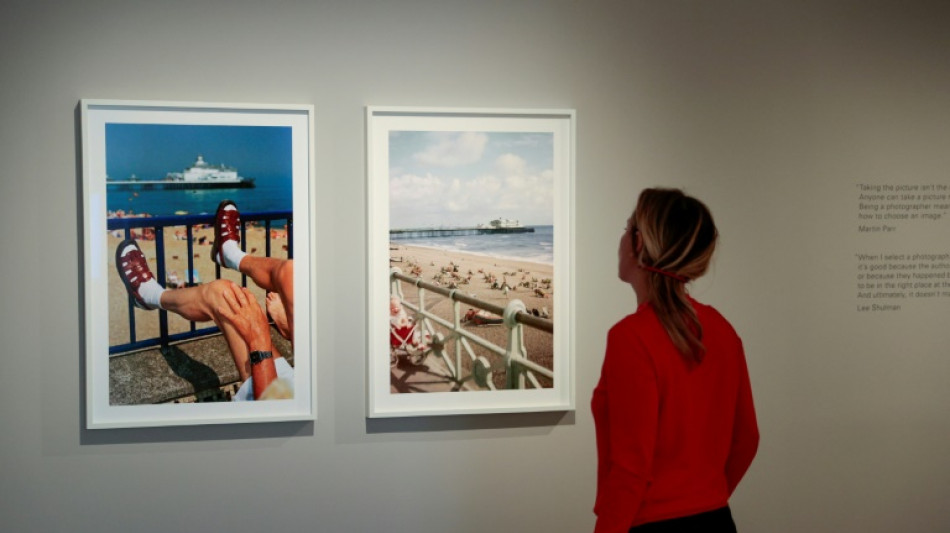
RBGPF
-0.9500


His kitschy colour-saturated images have made him one of the most beloved figures in photography, and at 70, Britain's Martin Parr is still having fun.
Parr's latest exhibition, at the Magnum Gallery in Paris, is an excellent example of his playful approach -- setting his pictures alongside those of amateur photographers without telling visitors which is which.
"Photography is very democratic. These people are taking just as good pictures as me, almost by coincidence, but they're doing it because they want to record it -- and that's partly my motive as well," Parr told AFP.
The exhibition was born from "The Anonymous Project" by curator Lee Shulman, who has collected and examined some 800,000 amateur slides taken between 1950 and 1980.
Schulman narrowed the selection down to 25,000, which were digitised, with 64 finally selected for the exhibition.
Each is paired with a photo by Parr, but there are no captions to tell them apart.
They mirror the sort of everyday life that has been Parr's bread and butter: bathers asleep in the sun, old men dancing with balloons, cakes and plates of fries forgotten on a table.
"I feel connected to the history of satire and humour in the UK. It's something we do quite well," said Parr.
"There's a bit of mischief in my pictures, and I think that's why people in France like them, because they get an opportunity to poke fun at the English.
"And I'm very happy to provide that catalyst," he added with a smile.
- 'Another planet' -
Parr has been a member of the renowned Magnum agency since 1994, but his light-hearted attitude disguises the fact that he ruffled many feathers in his early days.
He began fairly conventionally in the 1970s, taking formal black-and-white shots that aped the great masters of the time such as France's Henri Cartier-Bresson.
But he found himself drawn to the amusing seaside postcards and other kitsch items of everyday Britain.
His focus changed, and also his style.
"Once I tried colour, I never looked back," he said.
Parr began using flash, even outdoors, giving a raw tint to his photos.
The results often bemused his established peers.
"Cartier-Bresson came to a show I did, and he wrote that he didn't like the show. It was in colour," recalled Parr.
"He said I came from another planet and I wrote back to him and said: 'I understand your feelings, but don't shoot the messenger'"
Cartier-Bresson was among several photographers who tried to block Parr's entry into the Magnum agency.
But Parr had supporters and he squeaked through the vote -- and years later, he would end up chairing the organisation.
The story of this little dispute and its happy ending will be the subject of another exhibition opening in Paris in November entitled "Reconciliation", at the Cartier-Bresson Foundation.
S.Palmer--TFWP